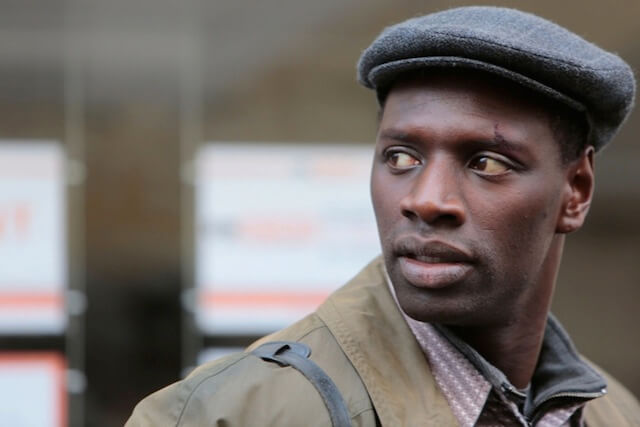‘Samba’ It made but a few ripples in America, but in the rest of the world the 2011 feel-good dramedy “The Intouchables” is everything. (Or, rather: “The Untouchables,” as it’s called everywhere else but here, where we’re still apparently in thrall to Elliot Ness.) The highest grossing French film in history, it charmed the globe to the tune of half a billion dollars, thanks to its broadly played tale of an uptight, quadriplegic richie (Francois Cluzet) who learns to chill thanks to a funny black immigrant (Omar Sy) — a situation which is less racially loaded in France than it is in America. Sy not only won the French equivalent of the Oscar but his turn made him the most popular actor in France. He was big enough to wind up in “Jurassic World,” if not big enough in America to get a decent role. “Samba,” Sy’s follow-up with directors Olivier Nakache and Eric Toledano, won’t have the same mega-impact, nor does it try to. It’s an issue film, tackling immigration with a combination of seriousness and humor not quite the same as “The Intouchables” but in the same wheelhouse. Sy plays Samba, a Senegal-to-France transplant who, thanks to a bureaucratic mess-up, winds up detained, with the possibility of deportation. He soon falls for Alice (Charlotte Gainsbourg), the nervous and sympathetic immigration officer working on his case. She’s sympathetic to his case, even when she knows he’s buying up fake IDs to stay in Paris, albeit to work thankless jobs no one else would touch. On the basis of “The Intouchables,” Nakache and Toledano would seem to be too populist to handle a topic this serious. For the record, they don’t simplify it, and they don’t sugarcoat it. (It’s worth noting, too, that immigration is a very different issue in France than it is in America, with the migrant population long an integral part of society; the problems here have less to do with xenophobia than bureaucracy.) “Samba” is effectively the Diet version of films by Ken Loach and the Dardenne brothers, but it is thorny and prickly and not grossly manipulative. Sy is once again hugely likable, and Samba is a good man, but he’s also complex, prone to screw-ups and selfishness, sometimes losing his temper, and not always for justifiable reasons. His journey isn’t a simple trajectory but filled with peaks and valleys, or more accurately anthills and dales. The film puts in the work to show him struggling to eke by. In fact, sometimes Nakache and Toledano let the plot get too meandering, and the jokes (including a set piece involving recreating a Coke commercial while high-rise window washing) sometimes seem shoehorned-in and easy. But they’re also, even that “show-stopping” bit, rooted in anguish — either gallows humor or moments of respite that help relieve tension. The best gag finds Samba exploding on Alice, only to get it back in kind and then some, meaning one of cinema’s quietest, mousiest actresses gets to launch into an unstoppable shouting fit of shocking and eventually amusing fury. Her character has anger management issues, which aren’t as defined as they should be, but Gainsbourg brings a gravity to a film that desire it, and the hesitant romance has a sweetness that helps make “Samba” a more emotionally mature film than the simplistic (but good vibes-y) “The Intouchables.” An ending that goes over-the-top before wrapping up patly suggests the topical film you’d expect Nakache and Toledano would have made all along. That it usually feels like it wasn’t made by them is a good thing.
Directors: Olivier Nakache, Eric Toledano
Stars: Omar Cy, Charlotte Gainsbourg
Rating: R
3 (out of 5) Globes
‘Samba’ lets Omar Sy be more than mega-likable

Broad Green Pictures
Follow Matt Prigge on Twitter @mattprigge






















